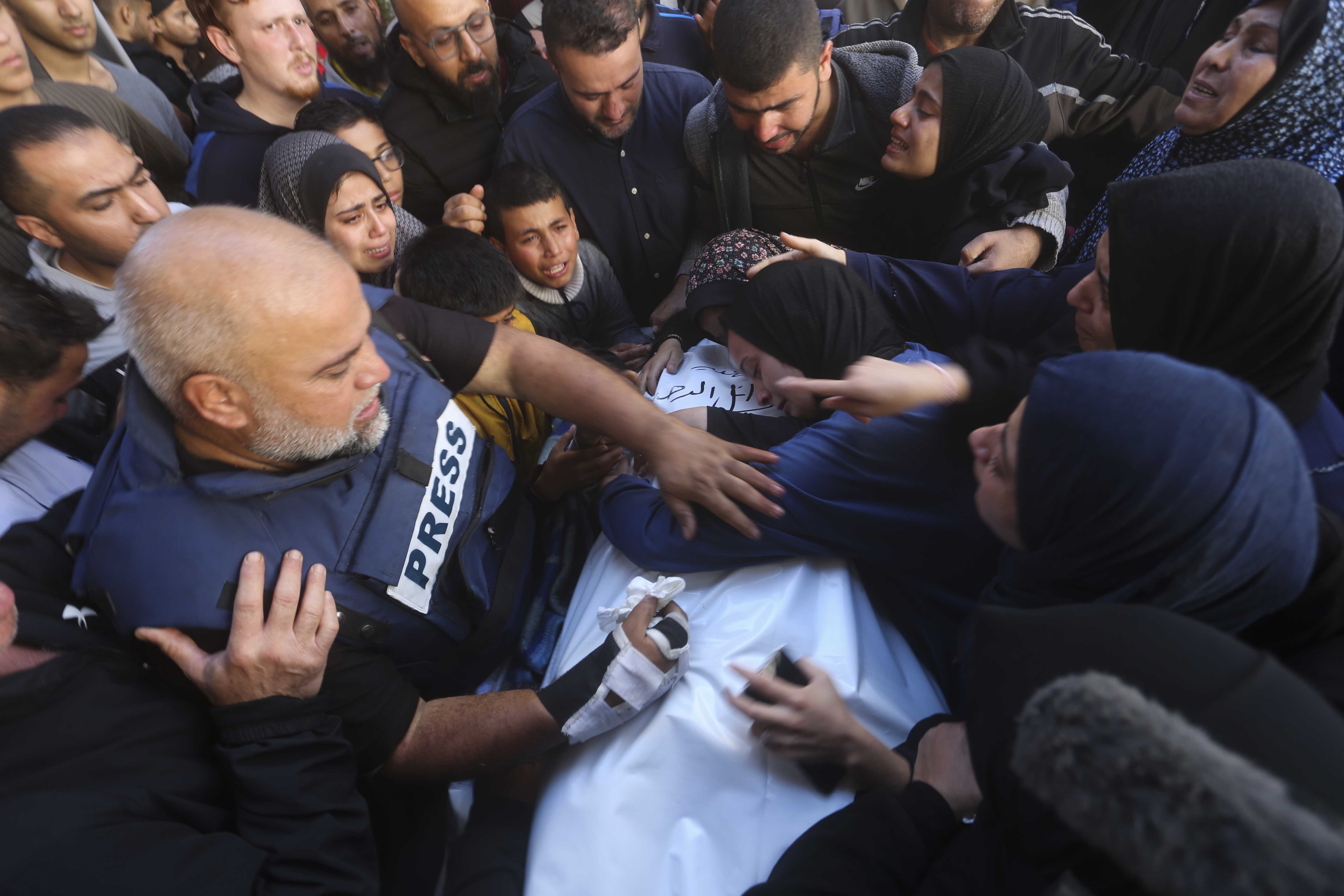The U.S.’s (non)response
All of this comes in the context of a war that is being financed and fully supported by the United States. The U.S. has provided Israel with close to $18 billion in military assistance since the beginning of the war, although U.S. law prohibits it from arming countries that don’t comply with international law. Deliberately targeting journalists is a war crime under international law.
In August, 140 press freedom organizations, journalists, and news outlets sent a letter to the U.S. Secretary of State Antony Blinken urging the U.S. to immediately cease sending weapons to Israel due to its continued killings of journalists.
In mid-October, the U.S. issued a rare warning to Israel threatening to withhold arms transfers unless the flow of humanitarian assistance to Gaza was not increased within a month — but there have been no similar warnings, let alone action, when it comes to targeting the press.
“The United States can’t claim to not know anymore, and it can’t claim to trust the Israeli authorities to investigate and change course,” Stern said.
Despite the U.S. administration’s alleged commitment to support free and independent media worldwide, “It has done exactly the opposite,” Stern said. “It supported the slaughter and censorship of free and independent media in Gaza and other affected areas.”
Stern concluded: “Governments that claim to operate the most moral army in the world are expected to take some reasonable measures to protect journalists, and particularly not target them.”
Mhawish, commenting on the attack on the Jabalia refugee camp in real time, said it’s “very enraging to me to see these targeted attacks against journalists and the world keeps just watching us die every day.”
Targeting journalists is “a way to silence the story and to silence those who seek to tell that story,” Mhawish added. Journalists in Gaza “carry cameras, (not) guns, but in the eyes of the Israeli military who seeks to hide the truth, we are a threat.”
“I see it as a genocide. (Journalists) are seen as a threat, we are seen as a danger,” Mhawish concluded. “I think silence is complicity.”



This thread will be full of centrists demanding silence because they like complicity.
“Complicity is the only choice,” they say, “because otherwise more people must die.”
If you can trap yourself into being complicit with murder, you are not a good person.
The amount of people raising the Trolley Problem with me is ridiculous. So, a hypothetical scenario where some force creates a murderous situation and causes you to be the only deciding factor in who dies describes a complex system involving millions of people where my influence is minimal to the point of not even being able to vote in the elections of a country I don’t live compels me to accept a status quo of state terrorism? Actually, no, it doesn’t. This is because the trolley problem is made up bullshit that doesn’t describe the real world. There are no tracks except for the ones you construct yourself, and they are inside your head. You don’t have to kill, and you do not have to condone killing, no matter how ‘sensible’ you assert doing so will be.
People fantasise about the Trolley Problem as a rationalisation for acting in harmful ways. “But you see, it’s actually the moral choice!” Acting in a way which harms others in order to enforce a convenient status quo is not a moral choice, it is merely a preference for the convenience of the status quo over those others, because you prefer your own comfort to their safety.